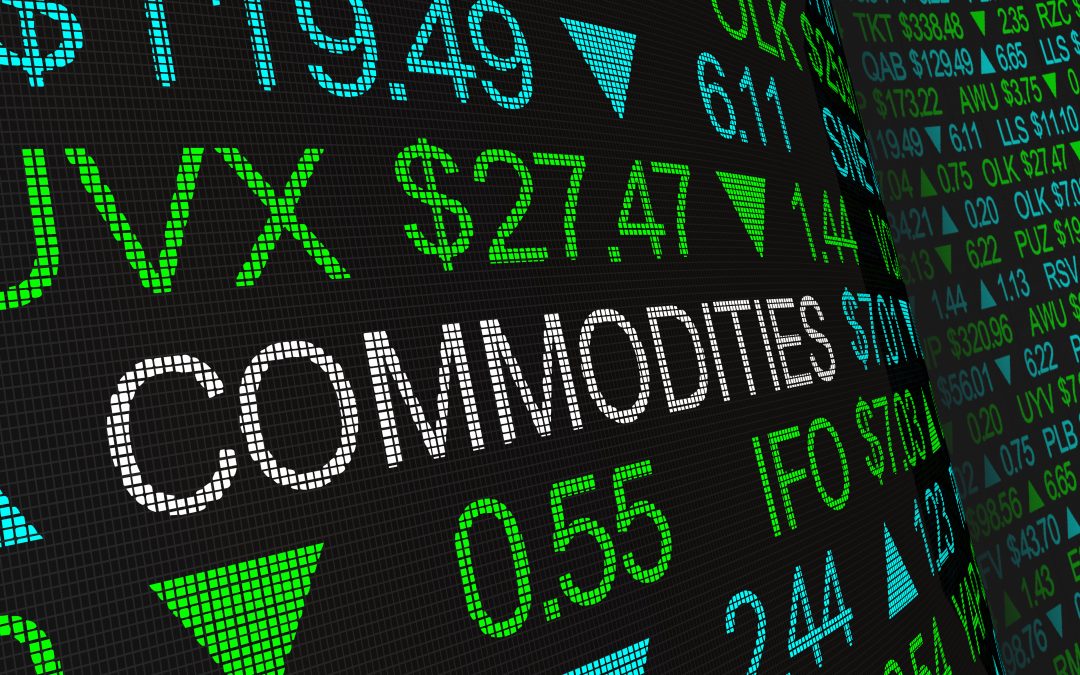It’s impossible to be a consumer these days and not be keenly aware that inflation is at a 40-year high. The 9% increase seen in June 2022 was the largest increase since 1981; consumers are feeling the pain everywhere they shop, from gas to food to housing — and relief does not seem to be in sight.
The Federal Reserve is belatedly tightening its monetary policy in response, with the resulting higher interest rates impacting the price of both stocks and bonds. The Fed is likely to raise rates further and will likely continue to do so until it breaks the stock market or housing market.
With commodity prices starting to come down as recessionary fears increase, it may be time in the coming months to increase allocations to commodity-related investments that might serve as a hedge against inflation. Even if inflation moderates as commodity prices decline in the short term, we expect inflation to remain elevated over the next five years.
Here are some of the best commodities to invest in that we believe can help you stave off the impacts of inflation:
- Gold
Besides being a good option as a possible hedge against inflation, gold can serve as an asset class all by itself as a monetary metal. Gold offers portfolio diversification, which is a source of its appeal to many investors. Its price shows a limited correlation to the price movement of traditional assets like stocks and bonds, which means that adding gold to a stock-and-bond heavy portfolio can help reduce volatility.
–
Furthermore, gold tends inflationary environments, making it attractive to investors during periods when inflation is creating a headwind for many stocks and bonds.
– - Food and Energy
Food and energy are necessities to live. Even if the price of energy and food-related commodities rise, consumer-, business-, and government-related demand for these commodities should remain relatively constant. Examples of these commodities include oil, natural gas, uranium, and fertilizer. At the same time, underinvestment in production over the past decade is likely to result in a supply shortfall in the coming years, which will likely result in higher prices over time.
–
Owning companies with exposure to rising energy and food-related commodity prices is a good idea in an inflationary environment, especially if you can buy a high-quality company at a price that represents a meaningful margin of safety, which means that you are buying shares at a price well below the intrinsic value of those shares.
– - Industrial Metals
Copper, zinc, silver, and other major metals used in heavy manufacturing and construction follow the economic cycle of supply and demand. In a recession, industrial metal prices tend to decline, which means that investors may soon have an opportunity to gain exposure at an attractive entry point.
–
These metals may also benefit from programs for decarbonization and infrastructure improvement, such as the proposed $1.2 trillion Bipartisan Infrastructure Law. This plan involves funding for transportation by road and rail, telecommunications, and power grid upgrades. Hundreds of thousands of tons of metals will likely be needed for these projects, greatly increasing demand for industrial metals.
–
If you look at your portfolio and decide that you’re too underexposed to commodities, you may want to look for opportunities to make strategic changes to your investment portfolio. Given the inflation risks that have developed, we are entering an investment era where it’s increasingly important to own real assets.
–
An experienced advisor can be your guide to what, for you, could be the best commodities to invest in. Speak to Pekin Hardy Strauss Wealth Management to learn more about adding these asset classes to your portfolio.
This article is prepared by Pekin Hardy Strauss, Inc. (“Pekin Hardy”, dba Pekin Hardy Strauss Wealth Management) for informational purposes only and is not intended as an offer or solicitation for business. The information and data in this article does not constitute legal, tax, accounting, investment or other professional advice. The views expressed are those of the author(s) as of the date of publication of this article, and are subject to change at any time due to changes in market or economic conditions. Pekin Hardy cannot assure that the strategies discussed herein will outperform any other investment strategy in the future.

